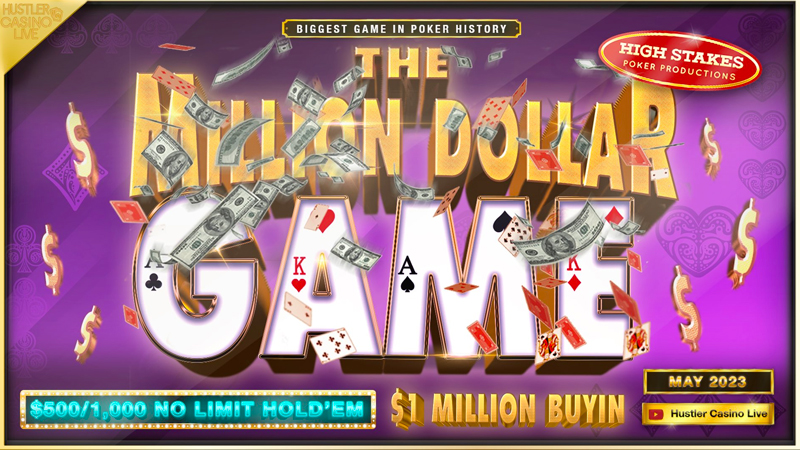Uncovering Secrets: Hookup Detectives
Explore the world of modern relationships and dating with insights from our hookup detectives.
High Stakes Casino Games: When Risk Is the New Reward
Dive into the thrilling world of high stakes casino games where every bet could lead to life-changing rewards! Risk it all for big wins!
Understanding High Stakes Casino Games: Strategies for Success
Understanding high stakes casino games requires both skill and strategy. These games aren't just about luck; they involve a deep understanding of the rules and the psychology behind betting. Players should familiarize themselves with various types of games, such as poker, blackjack, and baccarat, as each game has its own intricacies. Strategies for success in these games often involve mastering the mathematical odds, managing your bankroll effectively, and knowing when to take calculated risks. Here are a few key strategies to consider:
- Study the game rules and basic strategies.
- Manage your bankroll carefully to avoid going bust.
- Stay calm and focused, especially during high-pressure situations.
Another critical aspect of succeeding in high stakes casino games is psychological resilience. High-stakes environments can lead to high levels of stress, and maintaining your composure is essential. Developing a strong mental game can help you make informed decisions rather than emotional ones. Additionally, observing other players can provide insights into their styles and methods, which can be leveraged for your own advantage. Remember, the ultimate goal is to enhance your gameplay and maximize your chances of winning in these intense settings.

Counter-Strike is a popular first-person shooter game that has captivated players since its inception. Whether you're playing as a terrorist or a counter-terrorist, teamwork and strategy are essential to succeed. For those looking to enhance their gaming experience, consider using a duelbits promo code for potential rewards and bonuses.
The Psychology Behind Risk-Taking in High Stakes Gambling
The psychology behind risk-taking in high stakes gambling is a fascinating blend of behavioral economics, emotional triggers, and cognitive biases. Many gamblers are driven by the thrill of uncertainty and the allure of potential rewards. This phenomenon is partly explained by the prospect theory, which suggests that individuals perceive gains and losses differently; they tend to feel the pain of losses more acutely than the pleasure of equivalent gains. This can lead to a cycle known as 'loss chasing,' where gamblers increase their bets in an attempt to recover losses, often resulting in even greater financial risk. The adrenaline rush experienced during high stakes play can also trigger dopamine release in the brain, reinforcing the desire to take risks despite the potential for negative outcomes.
Moreover, the social aspect of gambling plays a crucial role in risk-taking behavior. Many players are influenced by their peers, leading to increased stakes and bolder bets. This social validation, coupled with the fear of missing out (FOMO), can intensify risky behavior, pushing individuals to engage in high stakes games they might otherwise avoid. Additionally, environmental cues such as the ambiance of a casino or the presence of other gamblers can further accelerate this desire to engage in risk-taking activities. Understanding the psychological factors at play can provide insight into why some individuals thrive on high stakes gambling, while others may approach it with caution and reserve.
What Makes High Stakes Games Worth the Risk?
High stakes games offer a unique blend of excitement and adrenaline, making them incredibly appealing to players willing to take risks. These games often involve significant monetary bets or tangible rewards, heightening the stakes and drawing in those who thrive on competition. The thrill of potentially winning large sums of money or valuable prizes can be compelling, as it activates a rush of dopamine in players, providing an unmatched sense of exhilaration. This psychological aspect of risk-taking is a key factor in why individuals are often willing to gamble big on such games.
Moreover, high stakes games foster an environment where strategic thinking and skill play a crucial role. Players often engage in intense competition, which not only enhances their gaming experience but also allows them to showcase their talents. The allure of being part of an elite group of players, where only the best navigate the complexities of high-stakes situations, adds to the appeal. Ultimately, the combination of risk, potential rewards, and the opportunity for personal growth make high stakes games worth the gamble for many enthusiasts.